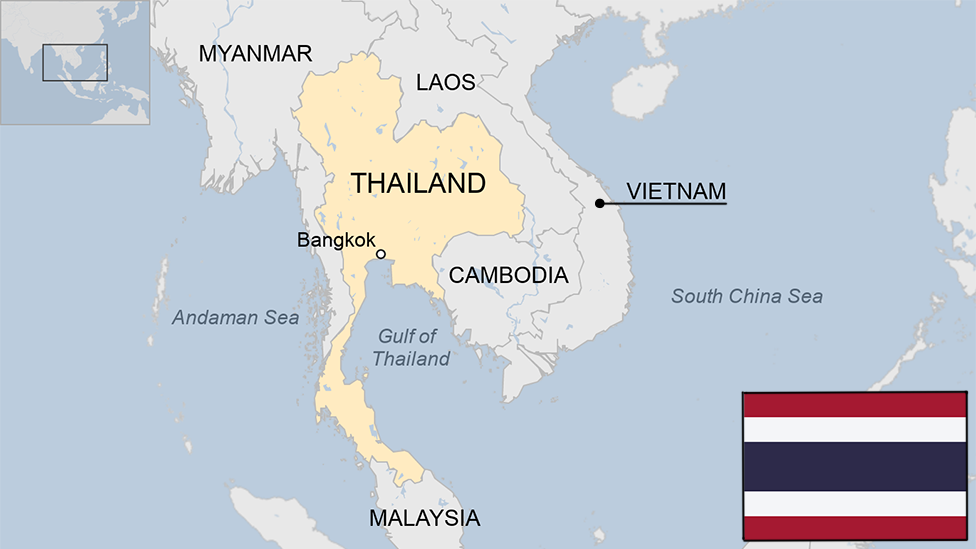Thai referendum: Why Thais backed a military-backed constitution
- Published
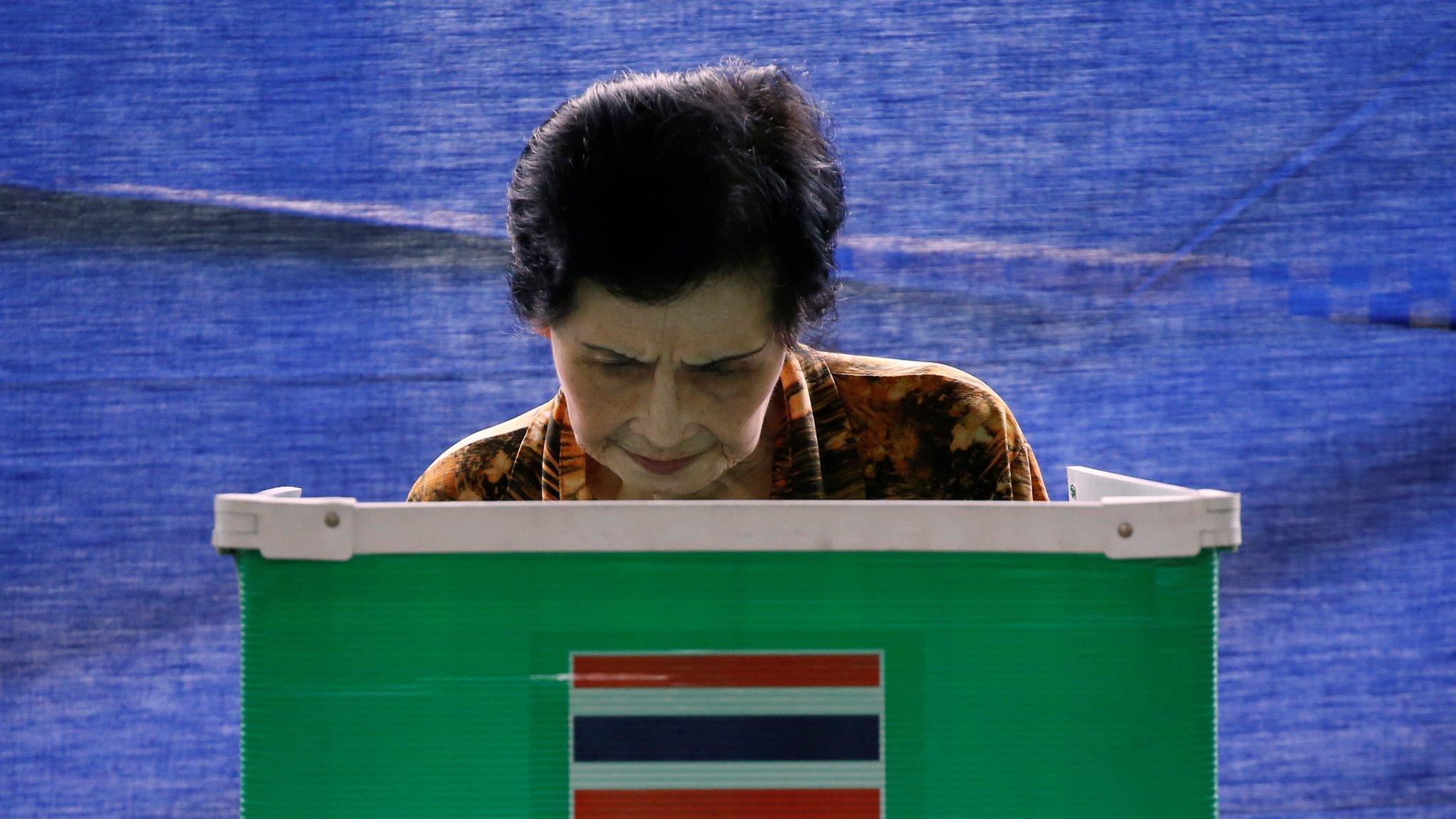
More than 61% of those who voted backed the new charter
The result of the referendum on Thailand's new constitution has left many observers around the world baffled.
Why would an electorate, denied any say over who governs them since a coup two years ago, vote to approve a charter which offers them only a semi-democracy?
A charter which was condemned by human rights groups and by the two largest political parties as a means to entrench military rule for many years to come?
Unofficial results of the referendum showed more than 61% of those who voted approved the charter.
More than 58% also approved a controversial second proposal to give the now unelected Senate to right to help choose a potentially unelected prime minister. Turnout was low at around 54%.
But it was enough to give the military government, which has been losing popularity because of its erratic performance, a green light to implement its controlled return to a democratic form of governance.
Many factors have been cited for the result. The repressive climate that preceded it is one. All campaigning was banned, and dozens of activists who tried to criticise the constitution were detained and charged.
That meant that very few Thais were exposed to arguments about the charter's flaws and merits: few even saw a copy, and those that did were hardly likely to wade through its 279 articles.
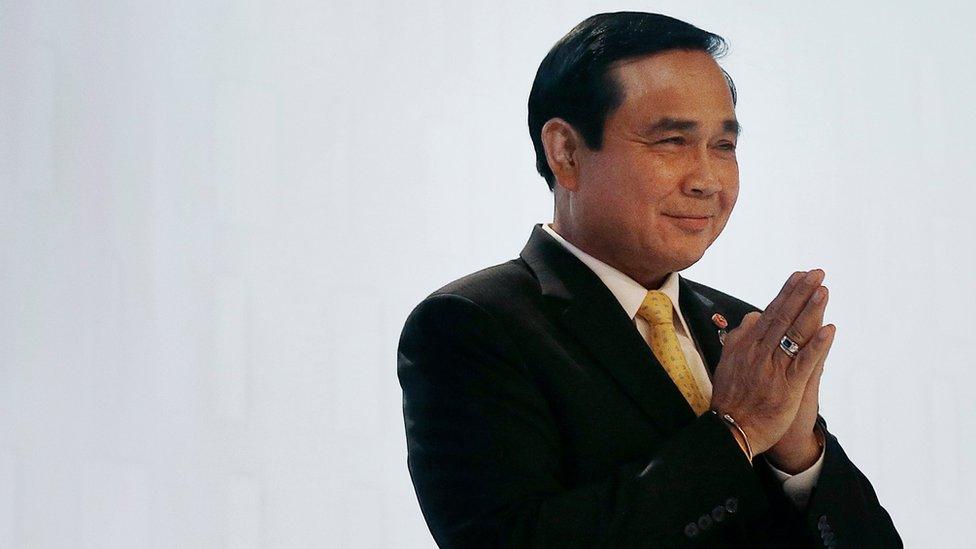
Some see the changes as paving the way for coup-maker General Prayuth to stay as prime minister
So most voters went to the polling stations with little idea what was in the charter.
They had frequently heard the drafters' argument that it would address political corruption and help reform the country. But it was very difficult to hear an opposing view.
Some people believed in the military's project to restore a guided democracy. Others trusted the generals to do the right thing. But many voters were simply weary of Thailand's endless crisis, and saw this constitution as the only way back to some kind of normality.
The military had not said exactly what would happen if the charter was rejected, but made it clear they would remain in charge.
'Organic laws'
"This is not the standard of democracy we would expect in this day and age", Abhisit Vejjajiva, leader of the second largest party, the Democrats, told the BBC, "but I respect the wishes of the people who voted".
The first task now of the Constitutional Drafting Committee is to draw up ten so-called organic laws, which will govern the new political system.
No one is sure yet what will be in these laws, but the established political parties fear one may require them all to dissolve themselves, and reform, possibly leading to fragmentation into smaller parties.
The new proportional voting system will in any case make it harder for the larger parties to win an overall majority, resulting in weaker coalition administrations.
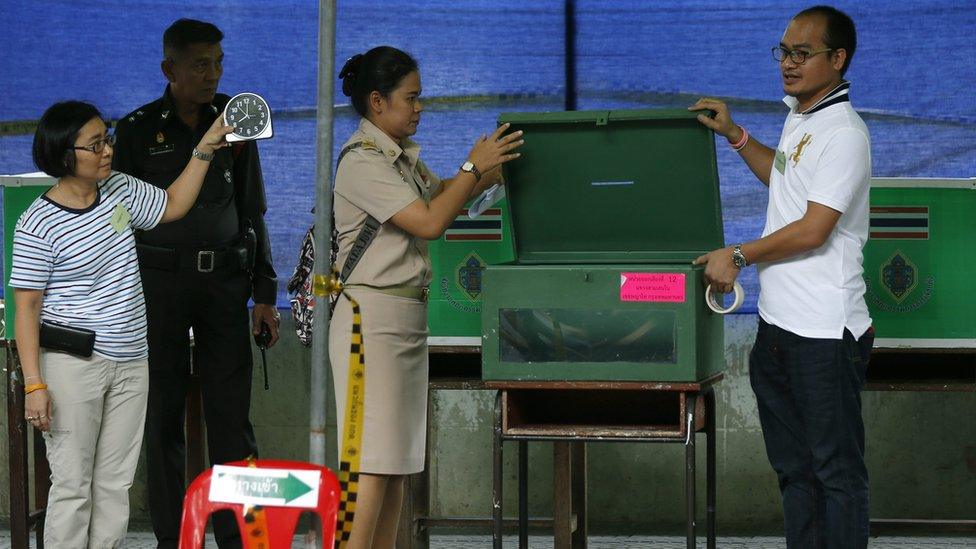
Weariness among Thais over seemingly perpetual political crisis was a factor in the referendum
Once those laws are completed, ideally within eight months, an election can be held as early as the latter part of next year.
After a new government is elected, it will find itself subject to supervision by the 250-seat Senate, which will be appointed by the military and its allies.
It will also be held more tightly to account by other so-called constitutional bodies, like the top courts.
Impeachment of politicians will become easier. And there is every possibility a non-MP may become prime minister, given the likelihood of deadlock in multi-party coalitions; some even see this as a vehicle for the coup-maker General Prayuth to stay in the job as prime minister in the first elected government.
Future governments will also be required to adhere to the military's own 20-year reform plan for the country.
Losers
The military will remain a significant force in Thai politics for many more years.
The obvious loser in this system is the party of ousted Prime Minister Yingluck Shinawatra, Phuea Thai, which, under different names, has won every election since 2001.
The new voting system is likely to cost it 10-20% of the seats it has won in the past, and Ms Yingluck, the party's best vote-winner, has been banned from office for five years by the current military-appointed assembly.
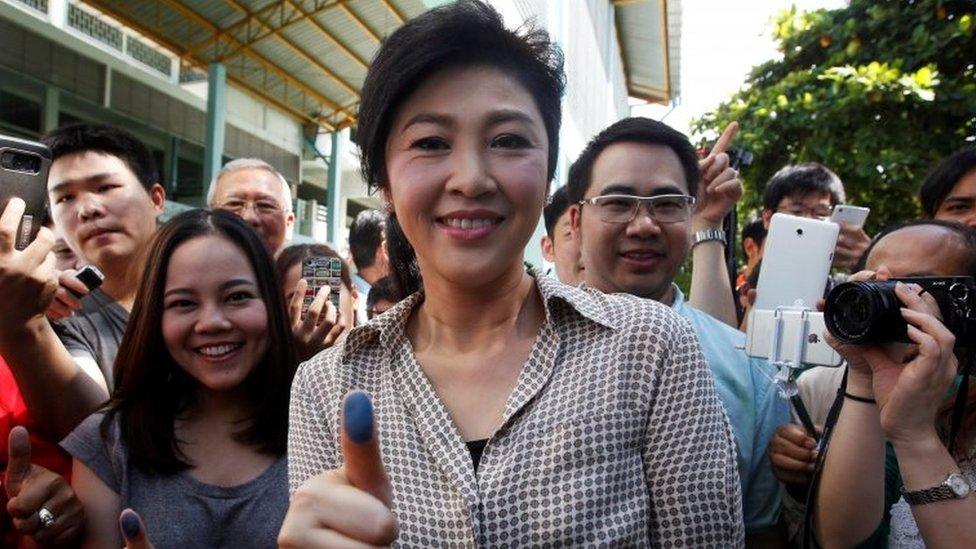
The vote could make life difficult for the party of former Prime Minister Yingluck Shinawatra
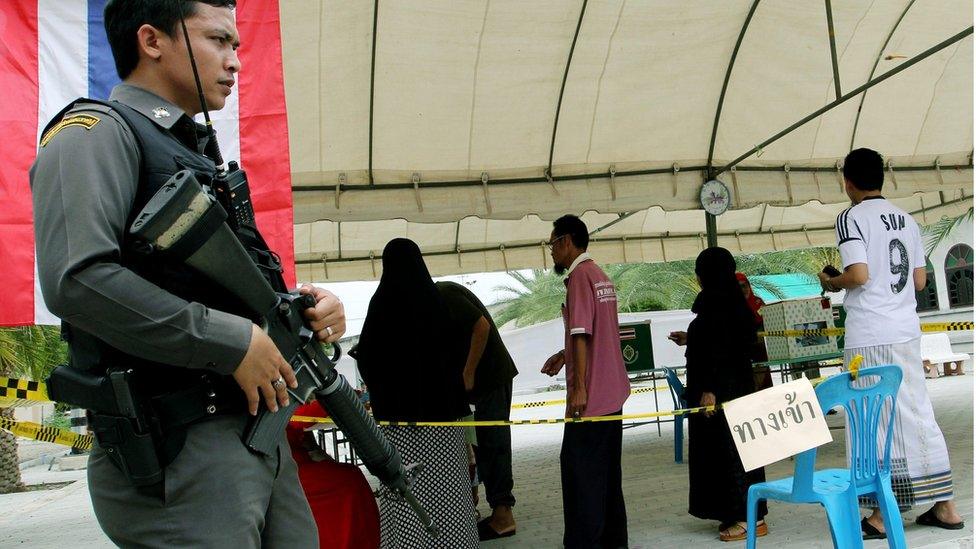
Yingluck Shinawatra was ousted by a military coup in 2014
Her brother Thaksin lives in self-imposed exile, after being convicted of abusing his power in 2008.
Even if Phuea Thai, or a reformed version of it, wins a plurality of the votes, the other parties could be organised, perhaps with quiet military involvement, as happened in 2008, into a coalition that denies it a mandate.
Thailand's military rulers have made no secret of their dislike of the Shinawatra clan, and it is hard not to see this constitution as primarily concerned to keep them out of office.
Overshadowing all these developments is the poor health of the ageing King Bhumibol Adulyadej.
This is a taboo topic in Thailand, but everyone here knows they will have to confront a future without the king soon.
During his 70 years on the throne, the king has been elevated to such an exalted status in the Thai hierarchy that he has become the essential source of authority for all power-brokers, the ultimate referee.
His eventual passing, and the accession of a far less popular son, will shake up the network of military officers, senior bureaucrats, tycoons and courtiers who currently wield influence at the top, with unpredictable consequences for Thailand's political stability.
The armed forces pride themselves on being, above anything else, defenders of the monarchy. They will not let go until the difficult succession has been completed.
- Published5 August 2016
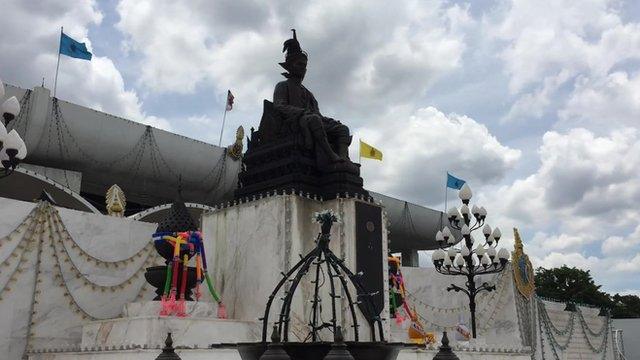
- Published7 August 2016
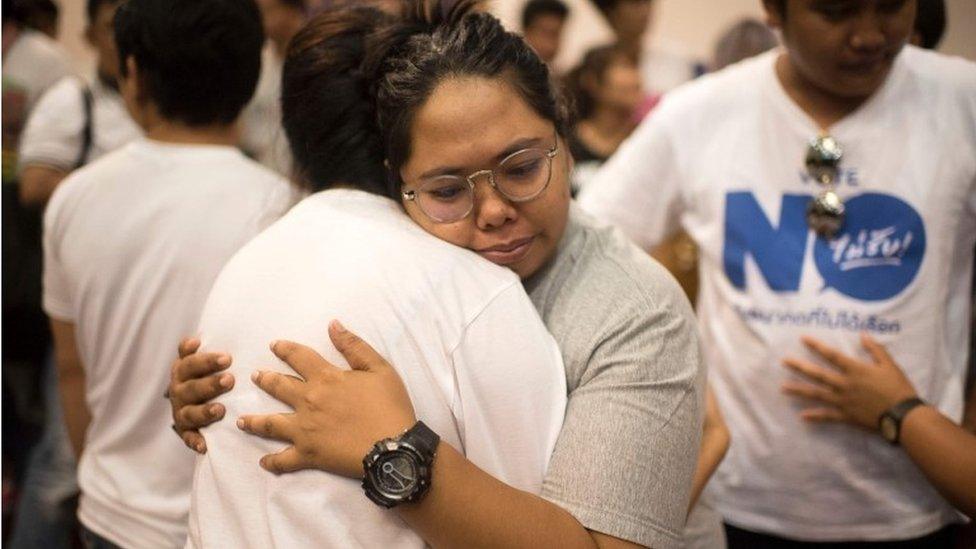
- Published7 June 2016
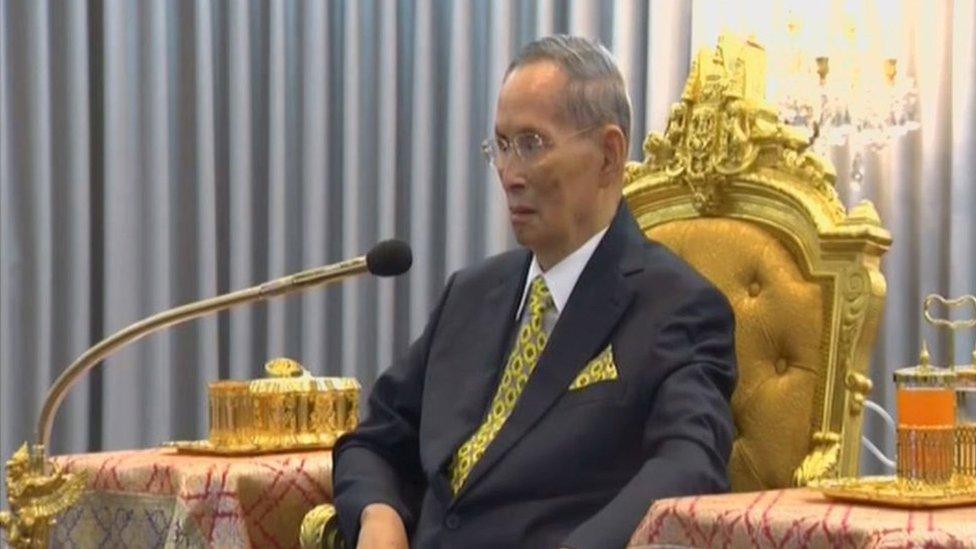
- Published16 August 2024
